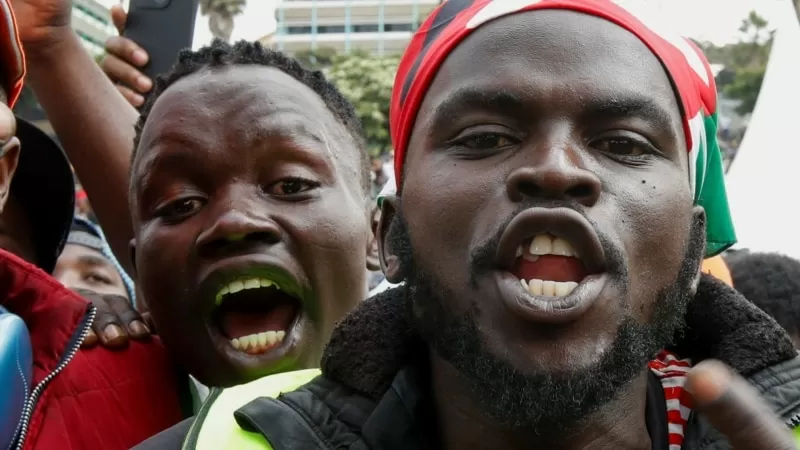NAIROBI, Kenya – The recent protests and rejection of a finance bill in Kenya have brought to light the issue of the country’s ballooning debt. President William Ruto has warned that this will have “huge consequences,” and the government’s plan to address the budget deficit and repayment of loans has sparked public outrage. But amidst all the challenges, there is still hope for Kenya’s economic growth.
In his quest to introduce taxes that would enable Kenya to repay its $80 billion public debt to lenders such as the World Bank, International Monetary Fund (IMF), and China, President Ruto has become deeply unpopular. The country’s debt has reached a worrying level, making up 70% of the gross domestic product, the highest in 20 years. With the recent rejection of the finance bill, the question now is how the government will find the money to pay off the debt without further angering the already struggling citizens and without slowing down the economy.
Economists like Mbui Wagacha, a former advisor to President Uhuru Kenyatta, believe that Kenya needs a professional budget and management body like the Office of Management and Budget in the United States. Currently, the treasury makes budget estimates and forwards them to the parliamentary finance committee, which then creates the finance bill. However, Wagacha argues that parliament has abdicated its mandate on public finances, and is more focused on its own interests.
Further borrowing by the government could be disastrous, according to Wagacha. He proposes a strategy of using diplomacy to attract investment and restructuring the debt to get creditors to write off some of it. Another economist, Ken Gichinga, agrees that continued borrowing will slow down the economy, especially with the effects of the COVID-19 pandemic and the war in Ukraine still lingering. Increased government borrowing leads to higher interest rates, which in turn affects businesses and the overall economy due to the high cost of repayment.
President Ruto has advocated for self-sustainability, urging the country to raise more revenue instead of relying on borrowing. In May, he stated, “If we are a serious state, we must be able to enhance our taxes.” However, Kenyans have rejected attempts to raise taxes as they struggle with the rising prices of basic goods. This was evident when protesters stormed the parliament during the recent demonstrations.
Last week, President Ruto announced that he would not sign the finance bill, which he once championed, and said that he had worked hard to “pull Kenya out of a debt trap.” He also warned of the huge consequences that lie ahead. According to Wagacha, economic growth should come before the government increases revenue targets and tax collection. He believes that an expanded economy, with employment and investment opportunities, will make it easier for citizens to accept new tax changes.
Gichinga suggests making access to low-interest credit easier for businesses, especially in key sectors like tourism and agriculture. He also advocates for lower taxation and interest rates for businesses to create more jobs. “At the end of the day, we need a jobs-centered economic policy. That’s what we’ve been lacking,” he says. This strategy could also address the issue of high youth unemployment in the country.
The IMF, which had proposed some of the controversial tax changes, has been a target of public dissatisfaction in Kenya. During the protests, some demonstrators held posters with messages such as “IMF stop colonialism.” In response, the IMF released a statement saying that it is monitoring the situation in Kenya and is committed to helping the country overcome its economic challenges and improve the well-being of its people. However, Gichinga believes that the IMF needs to do more for Kenya beyond focusing on debt sustainability and should be a strong partner in the country’s development.
Despite the challenges, there is still hope for Kenya’s economic growth. The government needs to address the issue of the ballooning debt and find a balance between repaying loans and stimulating the economy. This can be achieved through proper management of funds, incentivizing businesses to create jobs, and attracting investment through diplomacy. With a focused and efficient approach, Kenya can overcome its economic hurdles and emerge as a stronger and more self-sufficient nation.


